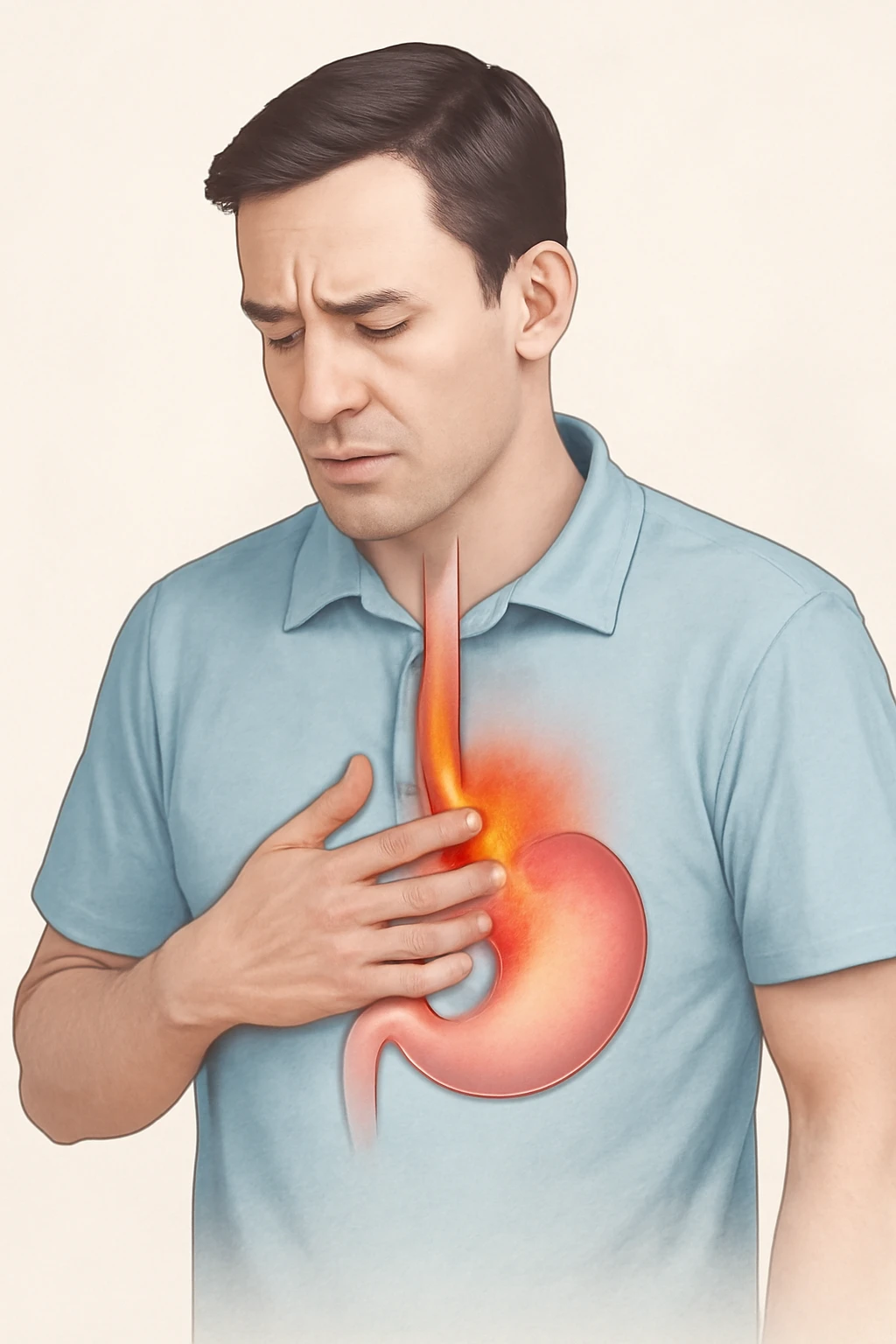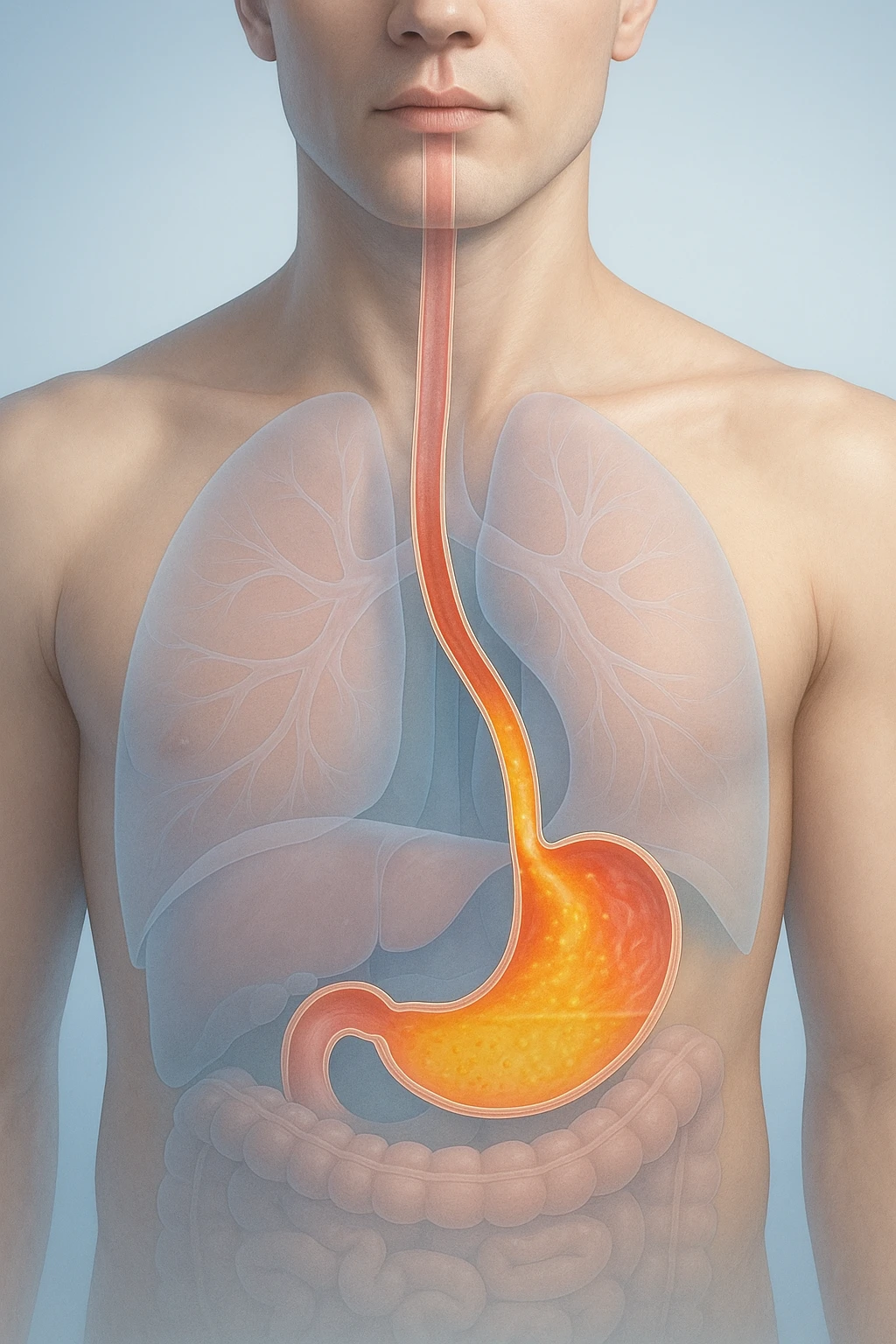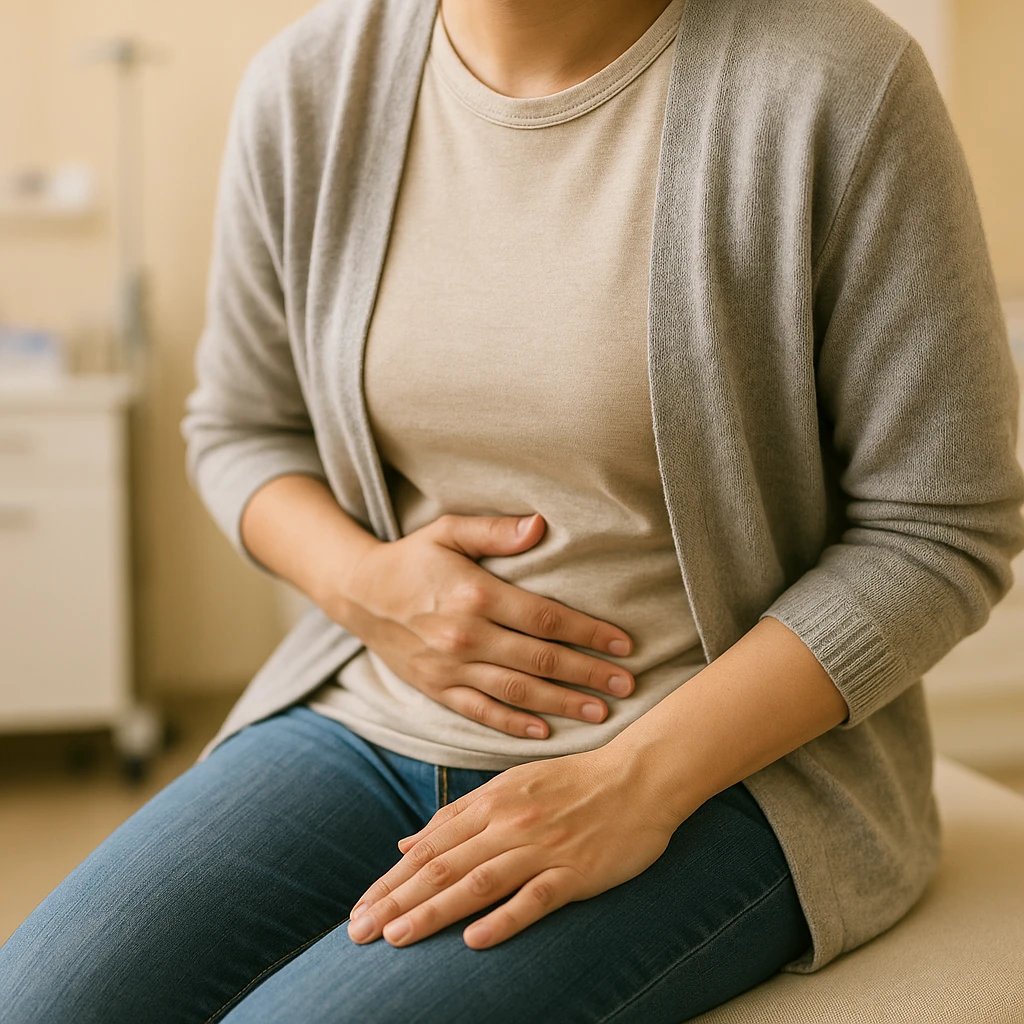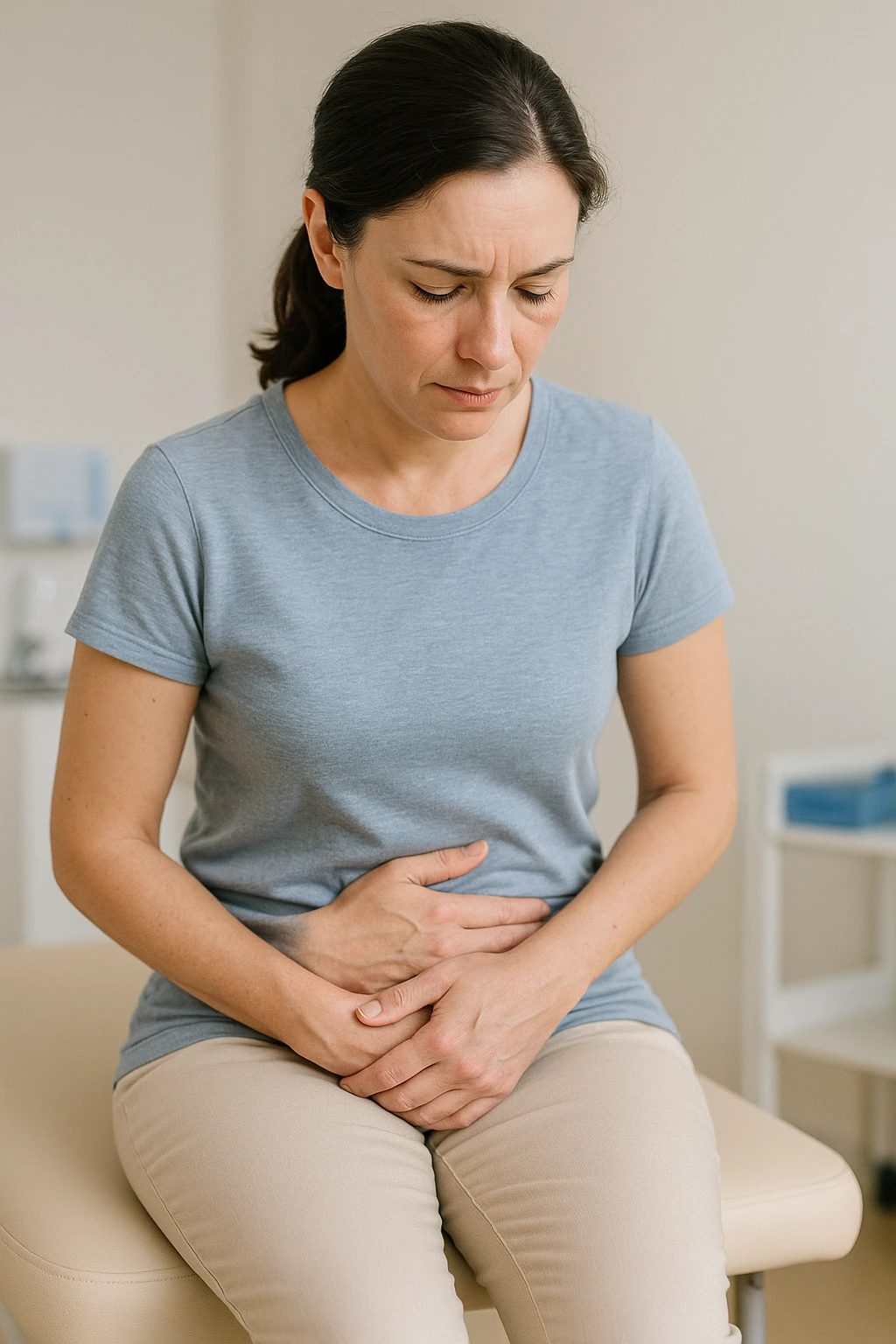Causes and Symptoms of Heartburn After Eating
What is Heartburn and When to Seek Medical Attention?
Heartburn Overview
Heartburn is a common condition characterized by a burning sensation in the chest, usually occurring after eating. It happens when stomach acid or bile irritates the lining of the esophagus, the tube that carries food from your mouth to your stomach. This sensation can range from mild discomfort to more intense pain, particularly after consuming certain foods or large meals. Heartburn typically worsens when lying down or bending over, as this can exacerbate reflux of stomach contents into the esophagus.
When to Seek Medical Attention
While occasional heartburn is generally not a cause for concern, persistent or severe heartburn may indicate a more serious underlying condition, such as gastroesophageal reflux disease (GERD). If heartburn becomes frequent, recurs after eating most meals, or is accompanied by other symptoms like:
- Difficulty swallowing
- Regurgitation of food or sour liquid
- Persistent chest pain
It’s important to consult a healthcare professional. These could be signs that the condition requires medical intervention to prevent long-term complications.
Causes of Heartburn After Eating
Acid Reflux and GERD
Heartburn is often caused by stomach acid refluxing into the esophagus, which can lead to a painful burning sensation in the chest. This occurs when the lower esophageal sphincter (LES), a muscle that normally keeps stomach contents from flowing backward, becomes weakened or relaxes inappropriately. When this happens, stomach acid and other digestive contents travel up into the esophagus, causing irritation and discomfort. If this reflux occurs frequently, it can lead to gastroesophageal reflux disease (GERD), a chronic condition that may cause persistent heartburn, regurgitation, and even difficulty swallowing over time.
Dietary Triggers for Heartburn
Certain foods are known to trigger or worsen heartburn and GERD symptoms.
- Fatty foods, such as fried items and fatty cuts of meat, can relax the LES and slow down digestion, increasing the likelihood of acid reflux.
- Chocolate, caffeine, and coffee are also common culprits due to their ability to relax the LES and stimulate acid production in the stomach.
- Spicy foods, citrus fruits, and tomatoes can irritate the esophagus and exacerbate heartburn symptoms.
- Consuming large meals or lying down shortly after eating can also increase the risk of acid reflux.
Lifestyle Factors and Their Impact
Lifestyle factors play a significant role in the development and exacerbation of heartburn. Obesity is a major risk factor, as excess weight can put additional pressure on the stomach, causing the LES to weaken and increasing the likelihood of reflux. Smoking is another key contributor, as it can impair the function of the LES and increase stomach acid production. Large meals, particularly those eaten late at night, can trigger heartburn by overloading the stomach and encouraging reflux. Pregnancy is another factor that can lead to heartburn, as hormonal changes and pressure from the growing uterus can affect the LES and increase acid reflux.
How Heartburn Affects the Body
The Role of Stomach Acid in Heartburn
Heartburn occurs when stomach acid flows back into the esophagus, the tube that connects the mouth to the stomach. Normally, the lower esophageal sphincter (LES) acts as a barrier to prevent stomach contents, including acid, from moving upwards. However, when the LES weakens or relaxes inappropriately, acid can reflux into the esophagus. This irritates the sensitive lining of the esophagus, causing the burning sensation known as heartburn. The discomfort typically occurs in the chest, often after eating, and can be aggravated by bending over or lying down.
GERD and Its Potential Complications
When acid reflux occurs frequently, it can develop into gastroesophageal reflux disease (GERD), a chronic condition. GERD is characterized by persistent heartburn, regurgitation of food or sour liquid, and difficulty swallowing. Over time, untreated GERD can lead to serious complications. The constant irritation from stomach acid can cause the esophagus to narrow, a condition known as esophageal stricture, making swallowing more difficult. Additionally, chronic acid exposure can result in a condition called Barrett’s esophagus, where the cells in the esophagus become abnormal. This condition increases the risk of esophageal cancer if left untreated.
Treatment Options for Heartburn
Lifestyle Changes for Managing Heartburn
Simple but effective lifestyle changes can help manage heartburn. One of the most important changes is to avoid large meals, as eating large portions can overload the stomach and increase the likelihood of acid reflux. Eating smaller meals more frequently throughout the day can help reduce the pressure on the stomach. Additionally, maintaining a healthy weight can prevent excess abdominal pressure that may cause the lower esophageal sphincter (LES) to weaken, which can lead to acid reflux. Another key lifestyle change is to avoid lying down immediately after eating. Waiting at least two to three hours before reclining helps reduce the chances of acid moving into the esophagus.
Medications for Heartburn Relief
For many people, over-the-counter medications can provide relief from heartburn. Antacids, such as calcium carbonate, can neutralize stomach acid and offer quick relief for occasional heartburn. For more frequent heartburn, H2 blockers, such as ranitidine, work by reducing acid production in the stomach. Proton pump inhibitors (PPIs), like omeprazole, are stronger medications that reduce stomach acid more effectively, making them suitable for people with persistent heartburn or GERD. These medications are widely available and can provide significant relief, but long-term use should be discussed with a healthcare provider to avoid potential side effects.
Surgical Treatments for Severe GERD
In severe cases of gastroesophageal reflux disease (GERD), when lifestyle changes and medications do not provide sufficient relief, surgery may be considered. One of the most common surgical options is fundoplication, a procedure where the top of the stomach is wrapped around the LES to strengthen it and prevent acid from refluxing into the esophagus. This procedure can provide long-term relief for individuals with severe GERD who have not found relief through other treatments. Surgery is typically considered only after other treatments have been exhausted, and it requires careful consideration of the patient’s overall health and specific needs.
Preventing Heartburn After Eating
Dietary Strategies to Prevent Heartburn
Making the right dietary choices can significantly reduce the likelihood of heartburn after eating. One effective approach is to follow a Mediterranean diet, which emphasizes whole grains, fruits, vegetables, lean proteins, and healthy fats, particularly olive oil. This diet can reduce the frequency of acid reflux episodes by promoting healthy digestion and reducing the risk of overeating. Additionally, avoiding common heartburn triggers such as spicy foods, fried foods, chocolate, and citrus can help prevent irritation of the esophagus. It is also helpful to eat smaller, more frequent meals rather than large portions, as large meals can increase stomach pressure and the risk of acid reflux.
Behavioral Tips for Preventing Heartburn
In addition to dietary modifications, certain behavioral habits can further reduce heartburn symptoms. One important tip is to avoid lying down immediately after eating, as this can encourage stomach acid to flow into the esophagus. It is recommended to wait at least two to three hours after eating before reclining or going to bed. Additionally, reducing stress levels through activities like yoga, meditation, or regular physical exercise can help prevent heartburn. Stress can increase stomach acid production and contribute to digestive issues. Maintaining a healthy weight is another key strategy, as excess abdominal pressure can lead to a weakened lower esophageal sphincter (LES), making reflux more likely.
- Heartburn is a burning sensation in the chest, often after eating, and may worsen when lying down or bending over.
- GERD can cause persistent heartburn, regurgitation, and difficulty swallowing.
- Heartburn is commonly caused by stomach acid refluxing into the esophagus.
- Obesity, pregnancy, smoking, and certain medications increase the risk of GERD.
- Dietary triggers for heartburn include fatty foods, chocolate, coffee, and spicy foods.
- Eating smaller meals and avoiding lying down after eating can help manage heartburn.
- Common medications for heartburn relief include antacids, H2 blockers, and proton pump inhibitors.
- Surgical options, such as fundoplication, may be considered for severe GERD cases.
- Avoiding late-night meals and large portions can help reduce heartburn symptoms.
- A Mediterranean diet can help reduce reflux episodes and prevent heartburn after eating.
Frequently Asked Questions About Heartburn After Eating
- What causes heartburn after eating?
- Heartburn occurs when stomach acid flows back into the esophagus. This can happen when the lower esophageal sphincter (LES) weakens or relaxes inappropriately.
- Can heartburn after eating be a sign of GERD?
- Yes, frequent heartburn after eating can be a symptom of gastroesophageal reflux disease (GERD), a chronic condition that may lead to other complications if left untreated.
- What foods trigger heartburn?
- Fatty foods, chocolate, coffee, spicy foods, and citrus fruits are common triggers. Eating large meals or lying down shortly after eating can also worsen symptoms.
- How can I prevent heartburn after eating?
- Avoiding large meals, waiting two to three hours before lying down, and eating smaller, more frequent meals can help reduce the risk of heartburn after eating.
- Are medications effective for heartburn relief?
- Yes, over-the-counter medications like antacids, H2 blockers, and proton pump inhibitors are commonly used to manage heartburn symptoms and reduce acid production in the stomach.
- Is surgery ever needed for heartburn?
- Surgery, such as fundoplication, may be considered for severe GERD cases when lifestyle changes and medications do not provide sufficient relief.
- What is the Mediterranean diet and how does it help with heartburn?
- The Mediterranean diet, rich in fruits, vegetables, whole grains, and healthy fats like olive oil, can reduce the frequency of acid reflux episodes and help prevent heartburn.
- Can stress cause heartburn after eating?
- Yes, stress can increase stomach acid production and contribute to digestive issues, potentially triggering heartburn after eating.













